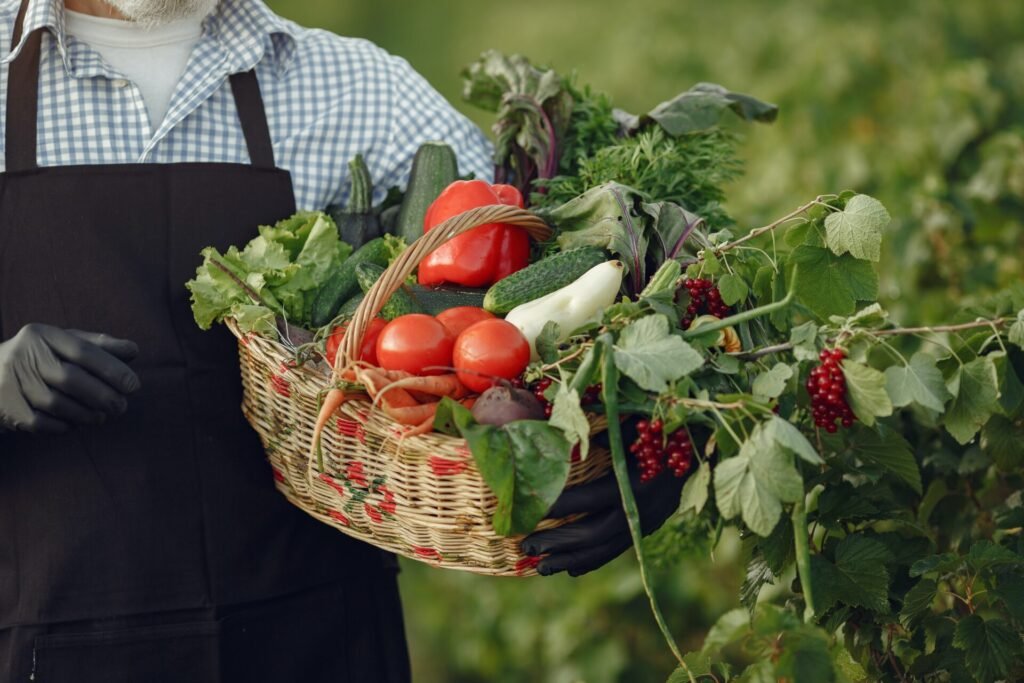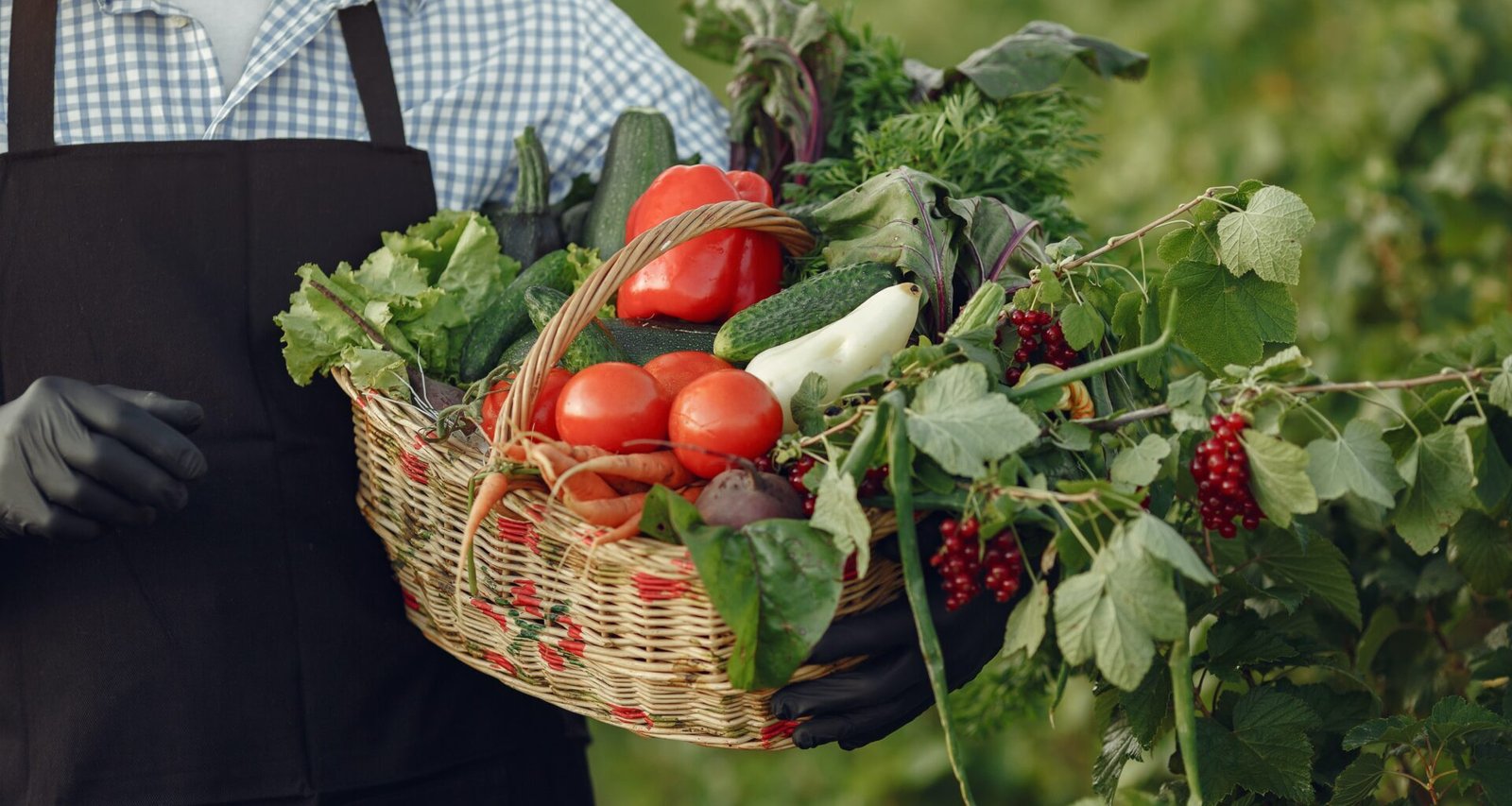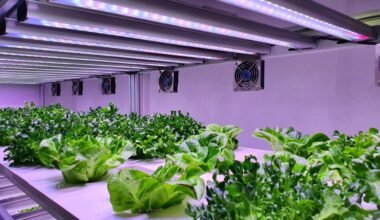Agroecology and sustainable food systems are critical components of a sustainable future. As the world races to address the challenges of climate change and biodiversity loss, agroecology has emerged as a promising approach to transforming food systems.
In this article, we will explore the principles of agroecology and sustainable agriculture, the relationship between agroecology and sustainable food systems, the challenges and barriers to agroecology and sustainable agriculture, and future opportunities for promoting agroecology and sustainable food systems.

Principles of Agroecology and Sustainable Agriculture
Agroecology is a way of thinking about agriculture that emphasizes ecological and social principles. At its core, agroecology seeks to create sustainable food systems by minimizing environmental harm, promoting biodiversity, and enhancing the livelihoods of small-scale farmers. Sustainable agriculture, on the other hand, is a broader concept that encompasses a range of practices aimed at promoting sustainable food systems.
One of the key principles of agroecology is minimizing the use of chemical fertilizers and pesticides. This is critical because chemical inputs can harm soil health, reduce biodiversity, and negatively impact human health. Instead, agroecology seeks to promote natural pest management practices, such as crop rotation, intercropping, and the use of natural predators.
Another key principle of agroecology is promoting biodiversity. This involves diversifying crop production, promoting the use of native crops and livestock breeds, and protecting natural habitats. Biodiversity is important because it helps to maintain soil health, enhance ecosystem services, and promote resilience in the face of climate change.
Agroecology also emphasizes conserving natural resources, such as water and soil. This involves using water more efficiently, promoting soil conservation practices, and reducing waste. By conserving natural resources, agroecology can help to mitigate the impacts of climate change and ensure that future generations have access to the resources they need to thrive.
Agroecology and Sustainable Food Systems
Agroecology and sustainable food systems are intimately connected. Sustainable food systems are those that promote food security, protect the environment, and enhance the livelihoods of small-scale farmers. Agroecology is a critical component of sustainable food systems because it promotes practices that are in line with these goals.
Agroecology plays an important role in promoting food security and food sovereignty. Food security refers to the availability of food, while food sovereignty refers to the right of people to determine their own food systems. Agroecology can help to promote food security and food sovereignty by enhancing the productivity of small-scale farmers, promoting the use of local crops, and reducing dependence on imported food.
Agroecology also has the potential to reduce poverty and improve livelihoods. By promoting sustainable agriculture practices, agroecology can help small-scale farmers to increase their yields and improve the quality of their crops. This, in turn, can lead to increased income and improved livelihoods for farmers and their families.
In addition to these social benefits, agroecology also has important environmental benefits. Agroecology can help to improve soil health, enhance crop yields, and reduce greenhouse gas emissions. By promoting natural pest management practices, agroecology can also reduce the use of chemical inputs, which can have negative impacts on the environment.
Challenges and Barriers to Agroecology and Sustainable Agriculture
Despite its many benefits, agroecology faces a number of challenges and barriers. One of the main challenges is a lack of access to resources and knowledge. Many small-scale farmers lack the resources and knowledge needed to implement agroecological practices, such as crop rotation and intercropping. This can make it difficult for them to transition to more sustainable agricultural practices.
Policy and regulatory constraints also pose a challenge to agroecology. In many countries, policies and regulations favor conventional farming practices, which can make it difficult for agroecology to gain a foothold. Resistance from conventional farming industries can also pose a challenge, as these industries may view agroecology as a threat to their business models.
Finally, economic barriers can also make it difficult for small-scale farmers to adopt agroecological practices. These practices can require upfront costs, such as purchasing new equipment or investing in new crops. Without access to financing or other support, small-scale farmers may not be able to overcome these economic barriers.
Successful Agroecological Projects
Despite these challenges, there are many successful agroecological projects from around the world. For example, in Brazil, the Landless Workers’ Movement has implemented agroecological practices on a large scale, promoting the use of agroforestry systems and natural pest management techniques. The movement has also established farmer-to-farmer networks to share knowledge and resources.
In India, the Deccan Development Society has promoted sustainable agriculture practices, such as seed conservation and rainwater harvesting, to improve the livelihoods of small-scale farmers. The organization has also established community seed banks to promote the use of local crops and reduce dependence on imported seeds.
In the United States, the Growing Power organization has transformed local food systems by promoting urban agriculture and sustainable farming practices. The organization has also established training programs and community outreach initiatives to promote the use of agroecological practices.
| Case Study/Example | Location | Description |
|---|---|---|
| The Landless Workers’ Movement | Brazil | This movement has implemented agroecological practices on a large scale, promoting the use of agroforestry systems and natural pest management techniques. The movement has also established farmer-to-farmer networks to share knowledge and resources. |
| Deccan Development Society | India | This society has promoted sustainable agriculture practices, such as seed conservation and rainwater harvesting, to improve the livelihoods of small-scale farmers. The organization has also established community seed banks to promote the use of local crops and reduce dependence on imported seeds. |
| Growing Power | United States | This organization has transformed local food systems by promoting urban agriculture and sustainable farming practices. The organization has also established training programs and community outreach initiatives to promote the use of agroecological practices. |
Case Study: Empowering Women Farmers through Agroecology
Fatima, a small-scale farmer from rural Morocco. Fatima has been farming for over 20 years, but she has struggled to make ends meet due to a lack of resources and knowledge on sustainable agriculture practices. That was until she joined an agroecology project that aimed to empower women farmers in her community.
The project taught Fatima and other women farmers how to use natural resources and organic farming techniques to improve soil health and increase crop yields. They also learned how to grow a variety of crops, which helped to diversify their income streams and improve food security in the community.
Fatima’s participation in the project not only improved her farming practices but also gave her a sense of empowerment and agency. She now has a greater voice in her household and community decision-making processes, which has led to more equitable distribution of resources and opportunities.
Through agroecology, Fatima and other women farmers in her community have been able to improve their livelihoods while also promoting sustainable agriculture practices that benefit the environment and future generations. This case study highlights the importance of empowering women farmers and promoting agroecology as a means of achieving sustainable food systems and addressing climate change and biodiversity loss.
Strategies for Promoting Agroecology and Sustainable Agriculture
To promote agroecology and sustainable agriculture, policymakers, farmers, and consumers all have a role to play. Policymakers can promote agroecological practices by providing incentives for small-scale farmers, investing in research and development, and establishing policies and regulations that favor sustainable agriculture.
Farmers can promote agroecological practices by sharing knowledge and resources, participating in farmer-to-farmer networks, and implementing sustainable agriculture practices on their own farms. Consumers can also play a role by supporting local food systems, promoting the use of sustainable agriculture practices, and making informed food choices.
Future of Agroecology and Sustainable Agriculture
Looking to the future, agroecology has the potential to contribute to building more sustainable food systems. Technological innovations, such as precision agriculture and vertical farming, also hold promise for promoting sustainable agriculture. However, there are also challenges and opportunities that lie ahead. Climate change, for example, poses a significant threat to agriculture, and agroecology will need to adapt to meet these challenges.
Conclusion
In conclusion, agroecology and sustainable food systems have emerged as critical components of a sustainable future. By promoting sustainable agriculture practices, reducing waste, and enhancing the livelihoods of small-scale farmers, agroecology can help to address the challenges of climate change and biodiversity loss.
While there are many challenges and barriers to promoting agroecology and sustainable agriculture, there are also many opportunities and successes to build upon. By working together, policymakers, farmers, and consumers can promote agroecology and sustainable food systems and build a more sustainable future.
References:
– Agroecology & Sustainable Food Systems (BS): Agroecology Research & Production Concentration
– Agroecology for Sustainable Food Systems
FAQs
Q: What is agroecology and how does it relate to sustainable agriculture?
A: Agroecology is the study of ecological processes in agricultural systems, and it promotes sustainable agriculture practices.
Q: Who benefits from agroecology and sustainable food systems?
A: Everyone benefits, from farmers to consumers, as well as the environment and the economy.
Q: How can farmers implement agroecology practices on their farms?
A: Farmers can implement practices such as crop diversification, soil conservation, and integrated pest management.
Q: What is the objection that agroecology is not profitable for farmers?
A: While transitioning to sustainable agriculture practices may require upfront costs, in the long run it can lead to greater profitability.
Q: How does agroecology address food security and access to healthy food?
A: Agroecology promotes the production of diverse and nutritious food, and prioritizes the needs of local communities and small-scale farmers.
Q: What is the objection that agroecology cannot feed a growing global population?
A: Agroecology has been shown to be capable of producing high yields and can be scaled up to feed a growing population while also promoting sustainability.








